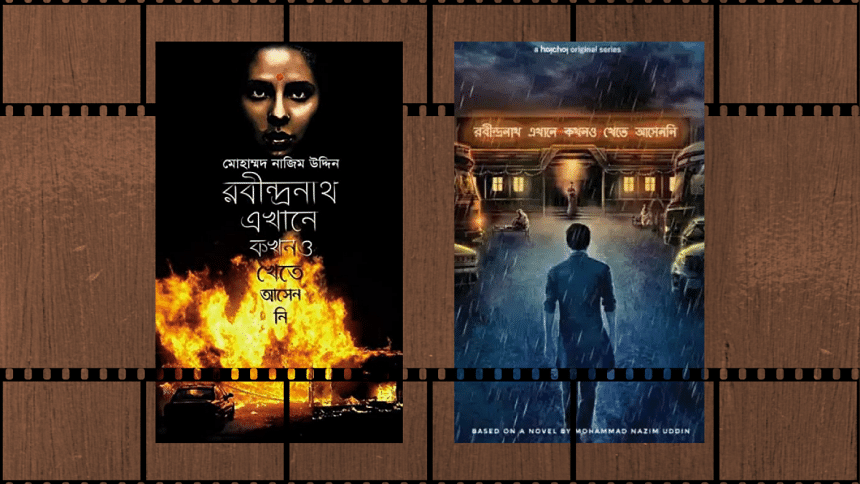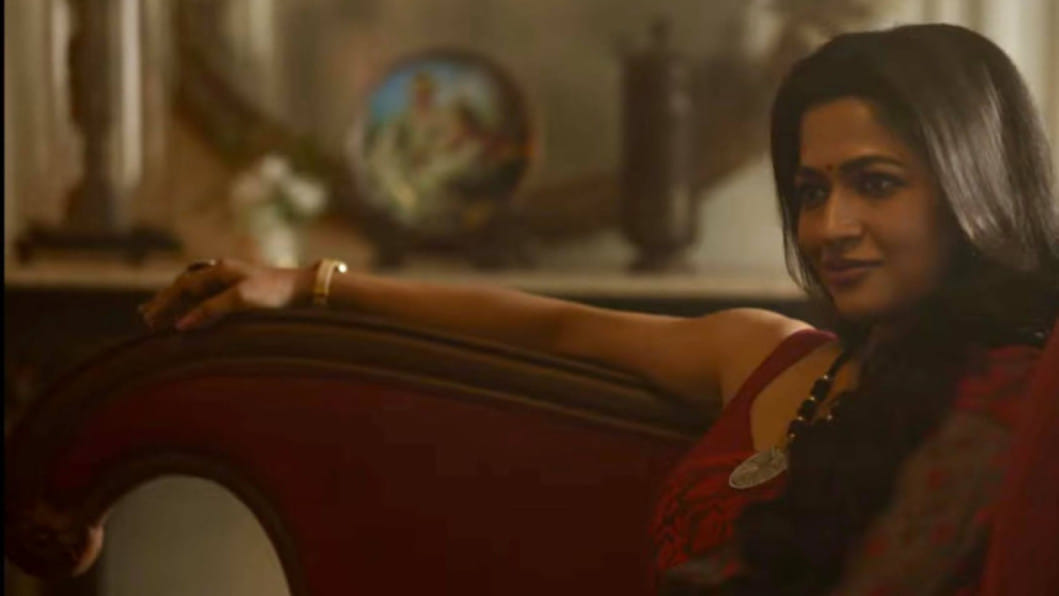‘Rabindranath Gave It a Miss’... for good reason

What's in a name?
Well, the weight of an entire work of fiction, it seems. After all, Robi Thakur himself has been casually inserted into a rather quirky title. The premise appeared to suggest a contemporary mystery of sorts, with some aspect of the supernatural thrown in. Consider my interest piqued.
I was about 10 pages in when I realised that I'd made a mistake.
Mohammad Nazim Uddin's fictional offering ultimately hovers somewhere between pulp fiction and feminist commentary, but it fails to satisfy readers on either count. Early on in the prologue of Rabindranath Ekhane Kokhono Khete Asen Ni (Batighar Prokashoni, 2015), we're introduced to a rather uninteresting protagonist, Noore Safa, a Bengali journalist from abroad, who arrives in the fictional Shundorpur and proceeds to dine at the mysterious Mushkan Juberi's roadside eatery. Prologues are usually meant to draw the reader into the story before it begins, but the plainly-written starter to this novel comes across as an unnecessary chapter. Instead of giving readers a foreshadowing of what's to come, it wastes time dwelling on the protagonist's fascination with a chef's special menu which won't make an appearance at any other point in the story, despite food and hunger being two of the primary themes in the story.
Going forward, the pacing feels uneven as the narrative travels back-and-forth between the perspectives of protagonists Mushkan, Noore Safa, and part-time police informant Ator Ali. Half of the story seems to unfold over the course of one tense night at the fictional mansion of Aloknath Basu, which only further ruins the pacing. The big reveal at the end seems like it was intended to challenge the prevalence of superstitions and preconceived notions about successful women in rural communities. It had plenty of potential, but there just wasn't enough sincerity on the author's part to deliver a commendable presentation of the subject matter.

Antagonist Mushkan Juberi is largely described as a manipulative woman who essentially seduces "gullible" men around her to do her bidding. But given Mushkan's backstory as a trauma survivor and her commendable skills in medicine and culinary arts, one expects a character like her to be written with a certain degree of complexity, a depth that the readers can sink their teeth into. Brief mentions of Mushkan's expertise in the aforementioned fields hardly suffice. On the other hand, the two protagonists Safa and Ator are as oddly paired as they come. While Ator Ali has his moments as a nosy informant with shady dealings, the same cannot be said for Noore Safa. The latter's identity comes with a plot twist and a mystery of its own, but he still fails to leave a mark as an investigative journalist with a secret agenda. Even though every other character in the novel is a fictional cliche, it is perhaps Safa's two-dimensional characterisation that most hampers the reading experience.
As for the remaining characters, they're made out to seem disposable for the most part. Safa's mentor, KS Khan, for instance, is described as an intimidating detective with ties to Dhaka's police force, but is only present in the book to take the narrative forward. We also come across Mushkan's admirers: Shundorpur's SP Monowar Hossain, OC Tofazzal Hossain, and SI Anwar, all of whom seem to exist solely to further objectify the antagonist. A good story may not always rest on the shoulders of likeable characters, but the leading characters ought to be made of enough substance to keep readers engaged. With a stereotypical femme fatale at the heart of the story, and a mismatched squad of unlikeable characters in her orbit, Rabindranath Ekhane Kokhono Khete Asen Ni really doesn't have much going for it, apart from the charming world building inspired by the lives of the Bengali upper class during the British Raj.

Director Srijit Mukherji's recent adaptation of the novel, streaming on HoiChoi, can be described as a rather ambitious project considering its setting and target audience, both of which are largely conservative in nature. The web series boasts a stellar cast, with Bangladeshi actor Azmeri Haque Badhon essaying the role of the antagonist, alongside actors Rahul Bose, Anirban Bhattacharya, Anjan Dutt, and Anirban Chakraborty in the roles of Nirupam Chanda, Ator Ali, Kharaj Khasnobish, and OC Tapan Sikder. If some of the names sound unfamiliar to you, that's because the director opted to make changes to them. Noore Safa thus became Nirupam Chanda. Further changes made to the narrative involve enhancing the original text's 19th-century Bengali aesthetics to the point of erasing the novel's distinctive Bangladeshi tone. The change in this regard is mostly pronounced in the dialogues and the set design, where a more West Bengali dialect dominates a rural Bangladeshi one, while the roadside eateries and guesthouses barely reflect modern Bangladeshi architecture.
Mukherji's improvisation, unfortunately, doesn't pay off. As unsavoury as the original text was, the author was able to efficiently use the aesthetics of its setting and pair it with Mushkan's unreliable narration to create a sense of misdirection leading up to the final plot twist. This mystical atmosphere of lingering tension and intrigue does not translate well on the screen. The web series' treatment of the historical setting only ended up butchering it, with the end product failing to neatly blend folklore with urban mythology in a contemporary Bangladeshi setting.

The remaining characters fare no better. Instead of watching a formidable businesswoman, viewers are introduced to a wandering female figure who gracefully poses for the camera in the middle of a rundown mansion. Both the character's potential and actor Badhon's brilliant performance eventually go to waste because of the creative team's decision to cater primarily to a male gaze. This regressive act is further coupled with ill-timed inclusion of Rabindra Sangeet, which plays at random intervals every time Badhon appears on screen. Mushkan's character is thus reduced to a cliched male fantasy figure who spends her days singing songs when she's not communicating with men in an unnecessarily low and sultry tone.
For both the writer of the novel and the director of the web series, Mushkan is seemingly anything but an actual woman. Her character is rooted in pseudofeminism, in which a woman attains a false sense of agency in a man's world, believing that her capacity for compromise is what empowers her. Mushkan of the screen is no improvement over the Mushkan on paper. What separates the two is Badhon's efforts to portray the character with power and depth.The actor delivers her lines with confidence rather than "womanly" grace, even going as far as to bring out a certain quirkiness and anxiousness to her portrayal of Mushkan. The lacklustre script and sloppy direction ended up undoing all of Badhon's good work, however, alongside the efforts put in by the other actors. While Anirban Bhattacharya chews through a forced accent, Rahul Bose tries to convey the director's vision of Nirupam Chanda through wooden expressions.
Had the book managed to step outside the confines of the male gaze, we would have had a phenomenal tale exploring the ties between male entitlement in our community and a superstitious 'witch hunt' for self-made women in present day Bangladesh. Alas, all we have is a a half-baked tale of bloodthirstiness stuffed silly with random references to Rabindranath's literary works.
Rasha Jameel studies microbiology whilst pursuing her passion for writing. Reach her at [email protected].

 For all latest news, follow The Daily Star's Google News channel.
For all latest news, follow The Daily Star's Google News channel. 








Comments